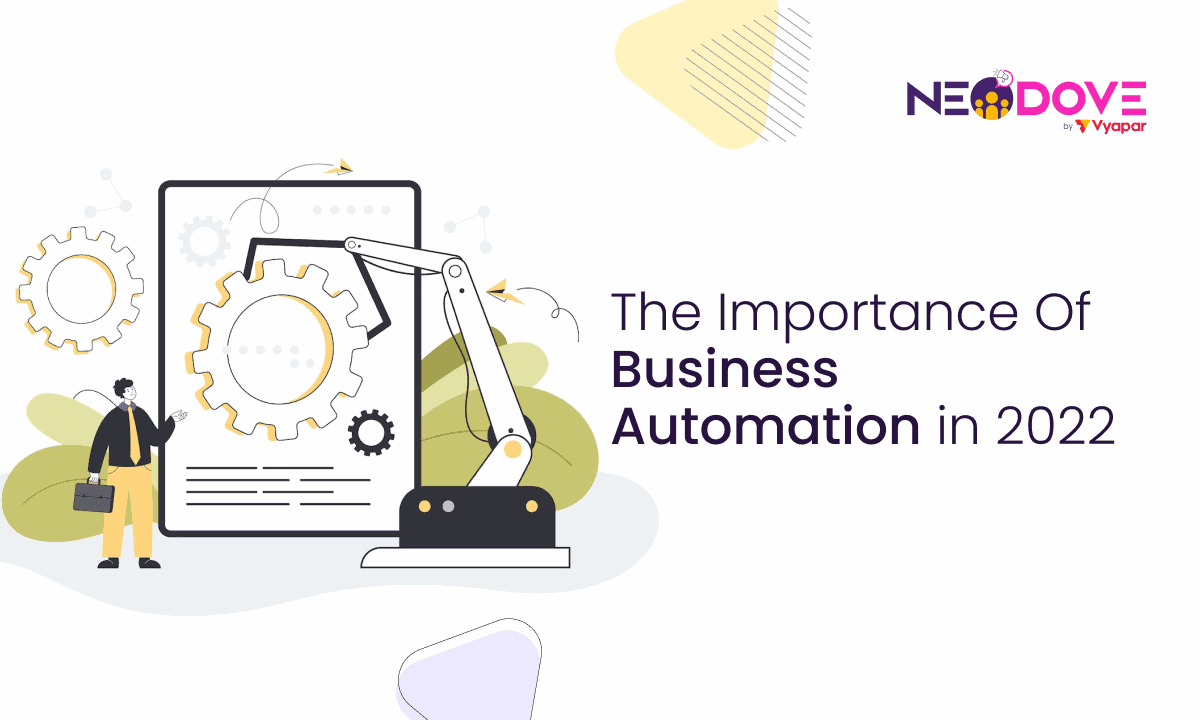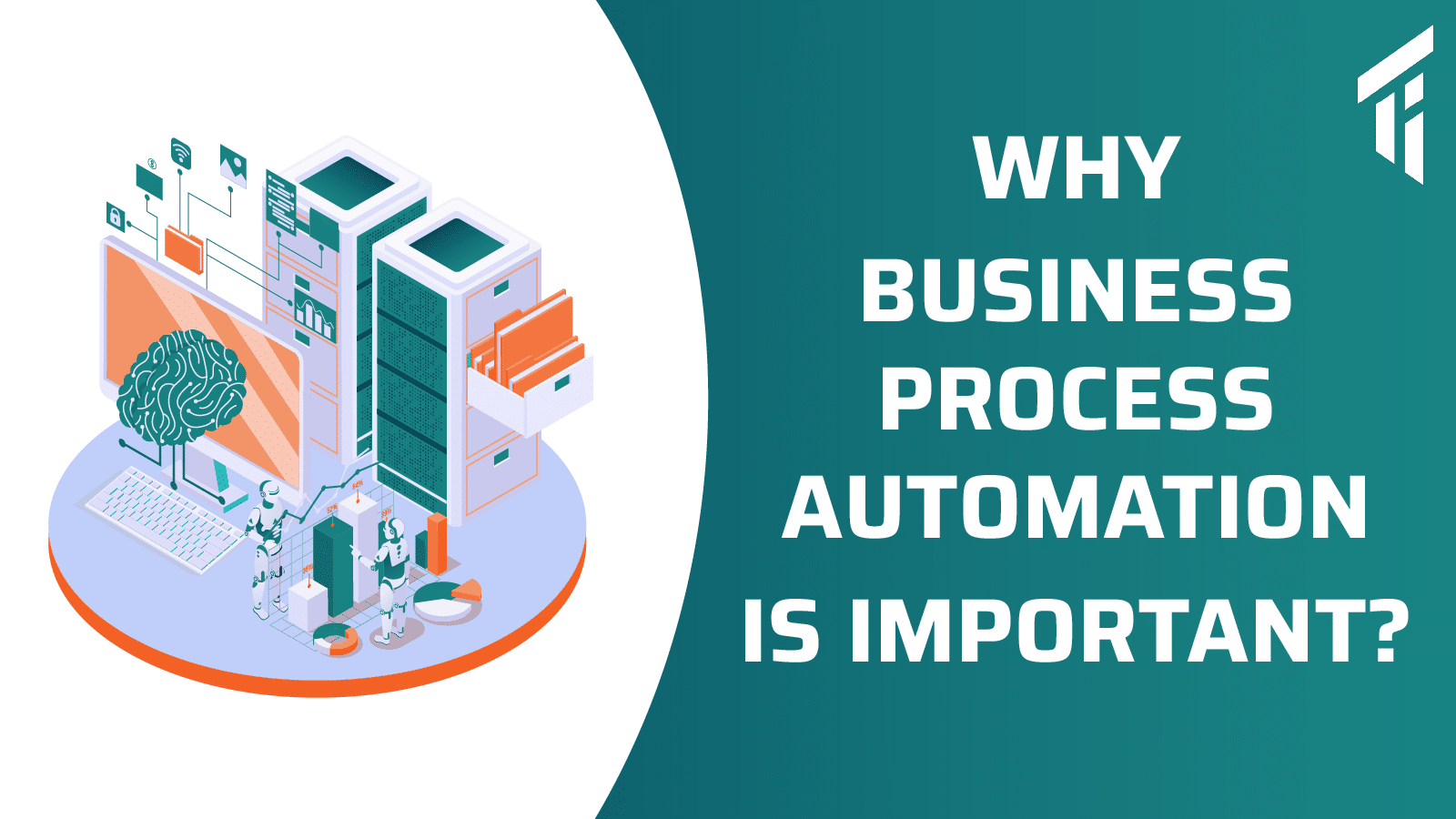Business automation streamlines company processes. It boosts efficiency and cuts costs.
Imagine a world where repetitive tasks are managed by technology, leaving humans free to focus on creative and strategic work. This is the promise of business automation, and it’s becoming increasingly important in today’s fast-paced commercial landscape. Business automation is a game-changer for companies of all sizes.
By automating routine tasks, organizations can reduce errors, save time, and improve overall productivity. Automation also allows for better data management, providing insights that can lead to informed decision-making. Moreover, as competition grows, the need to operate efficiently and cost-effectively has never been more critical. Automation technology is not just a luxury; it’s a necessity for staying relevant and competitive. With the right tools, businesses can enhance customer experiences, streamline operations, and foster innovation. This introduction sets the stage for a deeper dive into how automation is reshaping the modern business world.

Credit: neodove.com
Table of Contents
The Rise Of Business Automation
Business automation has become a staple in modern operations. It streamlines tasks, cuts costs, and boosts efficiency. Companies now rely on this tech to stay competitive. Let’s explore the driving forces and history behind this trend.
Key Drivers Behind Automation Trends
Several factors push businesses towards automation. The need for speed and accuracy tops the list. Tech advances make it easier and cheaper to automate. Market competition is fierce. Companies must move fast to survive. Clients expect quick, personalized service. Automation helps meet these demands.
Historical Context And Evolution
Automation is not new. It started with simple machines. Over time, computers joined the scene. Now, we have AI and machine learning. These tools take on complex tasks. They learn and improve over time. This evolution has shaped the business world. It has made automation vital for success.

Credit: www.linkedin.com
Defining Business Automation
Business automation uses technology to do tasks with less human help. It makes work faster and less prone to errors. This helps businesses save time and money. Now, let’s dig deeper into the core concepts and the types of automation in business.
Core Concepts And Technologies
At its heart, business automation is about making processes run on their own. It uses software to do tasks that people used to do. This includes sending emails, updating records, and making reports. The main goal is to let people focus on more important work.
Key technologies in automation include:
- Software for managing tasks
- Tools for making workflows
- Systems for tracking work progress
These technologies help businesses do their work with less effort.
Varieties Of Automation In Business
Automation comes in many forms. Each type helps in different ways. Let’s look at some examples:
- Marketing automation: This helps send the right messages to customers at the right time.
- Sales automation: It speeds up sales tasks like tracking leads and deals.
- Customer service automation: This uses chatbots and other tools to answer common questions quickly.
Each type of automation helps businesses run smoother and serve their customers better.
Immediate Benefits Of Automation
Exploring the immediate benefits of automation reveals key advantages for businesses. Quick gains in efficiency and cost savings stand out. Let’s delve into how automation brings these benefits to life.
Enhanced Productivity
Automation means faster work with less effort. Tasks that took hours now take minutes. Teams focus on bigger goals, not daily chores.
- Speeds up task completion
- Lets employees tackle complex problems
- Keeps work flowing 24/7
Reduction In Operational Costs
With automation, save money on labor and errors. Machines don’t need breaks or benefits, cutting down costs.
| Expense Type | With Automation | Without Automation |
|---|---|---|
| Labor | Decreases | Stays same or increases |
| Error Handling | Minimizes | Can be significant |
| Operation Time | Reduces | Longer duration |
Case Studies: Success Stories
Exploring real-world examples sheds light on business automation’s impact. Companies large and small have seen notable changes. These case studies highlight the benefits and strategies behind automation success.
Small Business Transformations
Many small businesses have embraced automation. A local bakery once struggled with inventory management. They switched to an automated system. Instantly, they saw a reduction in waste and an increase in profits. This bakery now enjoys streamlined operations and improved customer satisfaction.
Major Corporations’ Strategic Shifts
Large corporations also benefit from automation. A well-known retail chain implemented automation in their supply chain. The result was a 20% increase in efficiency. Their story shows how strategic shifts can lead to significant advancements. These corporations set examples for others to follow.
Long-term Strategic Advantages
Exploring the Long-Term Strategic Advantages of business automation reveals key benefits. It’s not just about saving time or money. It’s about setting your business up for future success. Let’s dive into how automation gives businesses a lasting edge.
Competitive Edge In The Market
Automation tools put your business ahead. Think faster services and better quality. Your competitors might still do things the old way. This gives you a big advantage. You can do more in less time and keep customers happy.
- Speed: Work gets done quicker.
- Accuracy: Fewer mistakes happen.
- Customer Satisfaction: People love fast and reliable services.
Catalyst For Innovation And Growth
Automation is a stepping stone for new ideas. It frees up your team’s time. This lets them think of new ways to grow. Businesses that innovate stay ahead. They find new markets and serve customers better.
- Teams focus on creating, not just doing.
- New products and services can come to life.
- Growth happens as you find new ways to serve customers.
Remember, automation is not just a tool. It’s a way to build a stronger, more innovative business. It sets you up for long-term success. Start simple, see the benefits, and keep growing from there.
Overcoming The Challenges
Embracing business automation comes with its hurdles. Companies must navigate these with care. The right strategies turn obstacles into stepping stones for success. Let’s explore how businesses can tackle two key challenges in the journey of automation.
Addressing The Skills Gap
Finding the right talent for automation can be tough. The tech world moves fast. Skills become outdated quickly. Businesses need to train staff or hire new talent with the necessary know-how. This ensures a smooth transition to automated systems. Companies can set up workshops and online courses. These help employees learn at their own pace. Investing in staff development is crucial. It keeps businesses competitive in a digital-first world.
Managing Change In Corporate Culture
Automation changes how work gets done. This can shake up the company’s culture. Staff might fear losing their jobs to machines. Leaders should be clear about the benefits of automation. They must show how it makes jobs easier, not redundant. Regular meetings and open discussions help. These ensure everyone feels involved in the change. Staff support is key for a smooth shift to automation. It’s about evolving roles, not replacing them.
Planning And Implementation
Business automation transforms companies. It streamlines tasks, cuts costs, and improves outcomes. But success hinges on solid planning and implementation. This phase sets the foundation for a smooth transition from manual to automated processes.
Steps To A Successful Automation Strategy
Start with clear goals. Know what you aim to achieve with automation. Assess your business processes. Identify which ones are ripe for automation. Choose the right tools. Match them to your business needs and goals. Train your team. Ensure they have the skills to use the new systems. Test the automation. Work out any issues before full-scale launch. Roll out in stages. It reduces risk and allows for adjustments.
Best Practices For Integration
Understand your workflow. It helps you see how new tools fit in. Keep data clean. This ensures that automated systems function well. Set up clear communication channels. They keep everyone on the same page. Monitor and tweak the system. Always look for ways to improve. Get feedback from users. They will tell you what’s working and what’s not.
The Future Of Automation In Business
The future of automation in business looks bright. It will change how we work. Companies that adapt will thrive. Those that don’t may fall behind. Let’s explore what the future holds.
Predictions And Trends
- More robots in factories and warehouses.
- AI will make decisions in business.
- Chatbots will help with customer service.
- Software will do accounting tasks faster.
These changes mean workers will do less routine work. They will focus on creative tasks. Businesses will save time and money.
Preparing For A Changing Landscape
Businesses must get ready for these changes. Here’s how:
- Train workers to use new tools.
- Think about what tasks can be automated.
- Keep up with tech news and trends.
- Start small. Try automating one process.
Getting ready now is smart. It helps businesses stay competitive. Automation is not just a trend. It’s the future of work.

Credit: targetintegration.com
Frequently Asked Questions
What Is Business Automation?
Business automation uses technology to do tasks with less human help.
Why Is Automating Business Processes Important?
It saves time and cuts errors, making work smooth.
How Does Automation Impact Business Efficiency?
Automation speeds up tasks and frees staff for other work.
Can Small Businesses Benefit From Automation?
Yes, even small businesses can save time and work better with automation.
What Are Common Tasks To Automate In Business?
Emails, scheduling, and data entry are often automated.
Does Automation Help With Customer Service?
Automation can give quick replies and 24/7 help to customers.
What Tools Are Used For Business Automation?
Software like CRM and ERP are used to automate tasks.
Are There Risks To Automating Business Processes?
Yes, if not set up right, it can cause problems.
Conclusion
Embracing business automation creates a solid path for efficiency and growth. It simplifies tasks, cuts costs, and boosts productivity. Smart automation tools help teams focus on what matters most. Every company, big or small, can reap these benefits. Let’s equip our businesses for a better tomorrow.
Start automating today. The future waits for no one. Let’s move forward with the power of automation.









